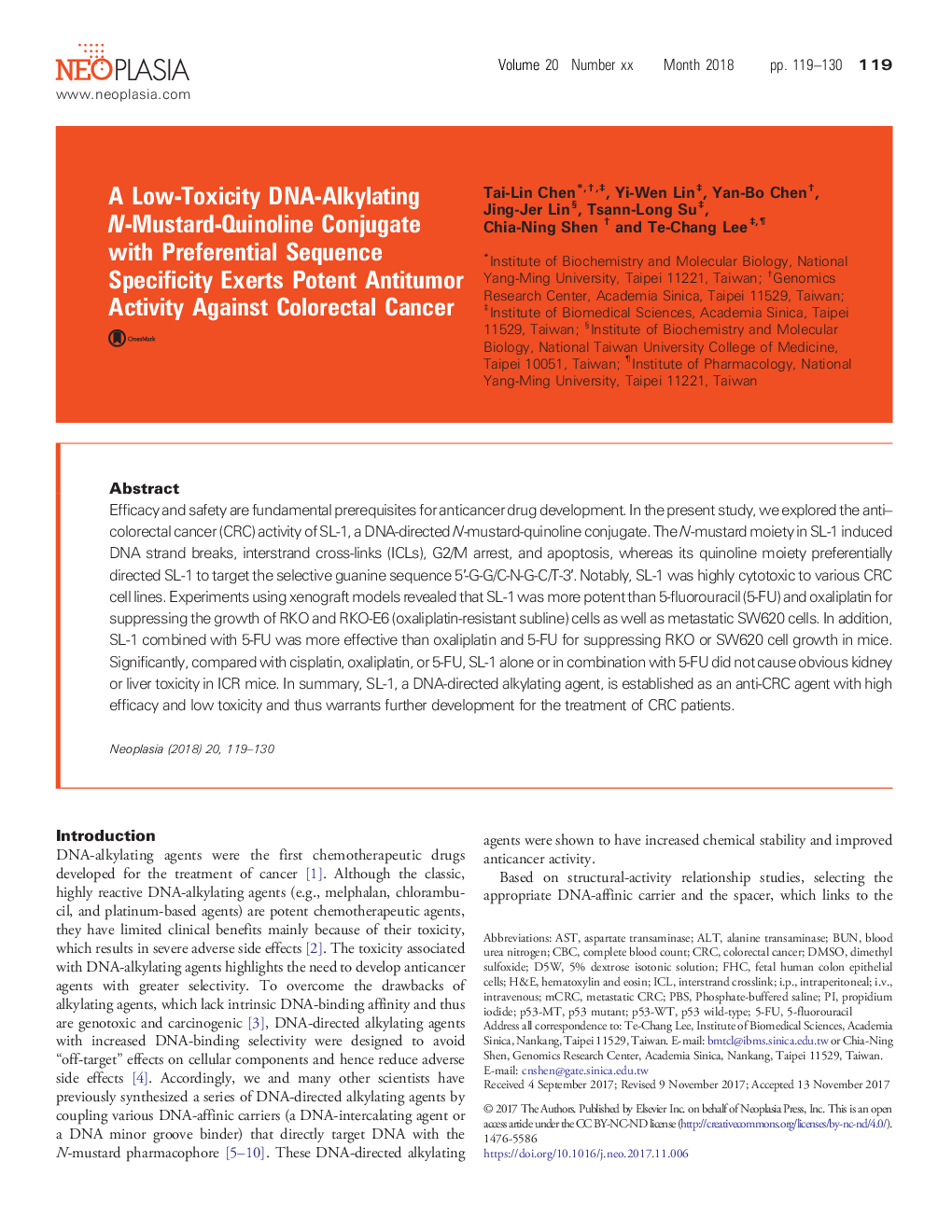| Article ID | Journal | Published Year | Pages | File Type |
|---|---|---|---|---|
| 8456839 | Neoplasia | 2018 | 12 Pages |
Abstract
Efficacy and safety are fundamental prerequisites for anticancer drug development. In the present study, we explored the anti-colorectal cancer (CRC) activity of SL-1, a DNA-directed N-mustard-quinoline conjugate. The N-mustard moiety in SL-1 induced DNA strand breaks, interstrand cross-links (ICLs), G2/M arrest, and apoptosis, whereas its quinoline moiety preferentially directed SL-1 to target the selective guanine sequence 5â²-G-G/C-N-G-C/T-3â². Notably, SL-1 was highly cytotoxic to various CRC cell lines. Experiments using xenograft models revealed that SL-1 was more potent than 5-fluorouracil (5-FU) and oxaliplatin for suppressing the growth of RKO and RKO-E6 (oxaliplatin-resistant subline) cells as well as metastatic SW620 cells. In addition, SL-1 combined with 5-FU was more effective than oxaliplatin and 5-FU for suppressing RKO or SW620 cell growth in mice. Significantly, compared with cisplatin, oxaliplatin, or 5-FU, SL-1 alone or in combination with 5-FU did not cause obvious kidney or liver toxicity in ICR mice. In summary, SL-1, a DNA-directed alkylating agent, is established as an anti-CRC agent with high efficacy and low toxicity and thus warrants further development for the treatment of CRC patients.
Keywords
Related Topics
Life Sciences
Biochemistry, Genetics and Molecular Biology
Cancer Research
Authors
Tai-Lin Chen, Yi-Wen Lin, Yan-Bo Chen, Jing-Jer Lin, Tsann-Long Su, Chia-Ning Shen, Te-Chang Lee,
